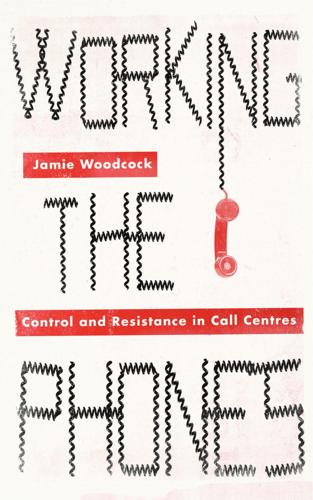
Working the Phones: Control and Resistance in Call Centres
by
Jamie Woodcock
Published 20 Nov 2016
He expands this by applying it to ‘the transition to post-Fordist empire’, arguing that it ‘marks a renewed intensification and generalization of plantation-era processes by which capital attempted to impose work – a generalization and intensification that is negated through its refusal’.76 Taylor also argues – and it is important to reiterate this here – ‘while labor in a plantation society and labor in Fordist society are qualitatively different, the plantation and the factory are both constituted through an antagonistic dialectic, pitting a workforce striving for “universality” against the regime of labor in capitalism’.77 The opposition of the anti-work perspective to orthodox Marxism is a historical peculiarity. Marx himself studied the ‘antagonistic social dynamics of postemancipation Jamaica’ and ‘would develop a robust antiwork perspective in the Grundrisse’.78 While Negri’s perspective was developed through a close reading of the Grundrisse, the figure of the slave remains absent in his anti-work politics. For Marx, the free slaves became the active subjects of two refusals: refusing slavery and then refusing wage labour.79 Freed from the direct, forced exploitation of slavery they are unwilling to submit to indirect modes of exploitation.
…
For Marx, the free slaves became the active subjects of two refusals: refusing slavery and then refusing wage labour.79 Freed from the direct, forced exploitation of slavery they are unwilling to submit to indirect modes of exploitation. This experience in the Caribbean is the starting point for Marx’s notion of anti-work, although he did not develop this in the same way as did either Lafargue or James. The anti-work perspective provides a 146 Precarious Organisation critique that is not limited to the question of control of the labour process. In the context of ‘bullshit jobs’ it is possible, as Taylor argues, to go further than ‘moralistic invocations of labor’s value’ that ‘appear grotesquely comical’.80 An ‘Antiwork Marxism’ holds potential in that it encourages us to laugh at this moralism, to take it for the farcical tragedy that it is, and to imagine new forms of life.
…
James, and the link that Christopher Taylor identifies between Operaismo and the Caribbean, an argument can be posed about the possibilities of an anti-work politics. If there is a historical connection between modern management techniques and slave owners, an analysis of the development of struggle between these forms and their subjects is also important. The search to uncover the subjects of revolt is therefore the search for those engaging in a refusal: from the slave, to the Fordist worker, to the precarious worker seeking to regain some autonomy. The anti-work perspective provides a critique that is not limited to the question of control of the labour process – indeed, the possibility of control is absent at this point anyway.
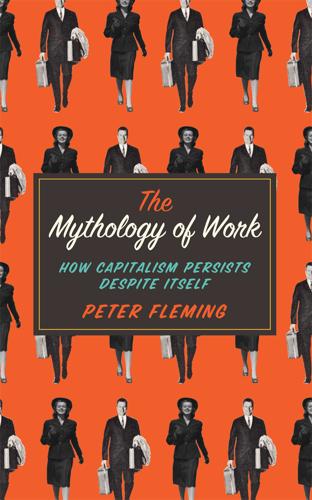
Mythology of Work: How Capitalism Persists Despite Itself
by
Peter Fleming
Published 14 Jun 2015
But workplace informality has a dark side; namely, the potential for authoritarianism to take on a rather sadistic and perverse quality. Informality and power do not go well together. Under such circumstances we are not only paying for the elite’s freedoms, but being callously toyed with to boot. Hence Jez’s rancour. And herein lies the problem with anti-work arguments that evoke Parkinson’s Law. The idea behind the law is simple. If we are given eight hours to perform a task, it usually takes eight hours to do so successfully. If we are only given three hours to do the same task, it typically takes three hours to do so successfully. Therefore, we could spend much less time on the job whilst maintaining the same level of productivity achieved by the 40-hour work week.
…
Rationalization is thus a question of perspective or standpoint rather than numerical formulation, and that standpoint is completely determined by class politics. The ‘waste’ that managerialism so meticulously identifies is often simply our freedom to act in concert to achieve self-determined ends. Or, our freedom to do nothing (although it should be remembered that, unlike Bertrand Russell, most successful anti-work advocates hate ‘doing nothing’ per se, which is more akin to life in the post-industrial office than anything else). But most importantly, neo-capitalism views the freedoms of worker democracy as the clearest manifestation of wastefulness. Workplace democracy is technocratic capitalism’s greatest fear and enemy for obvious reasons.
…
The customary practice consisted of workers dropping their tools, vacating the factory and getting extremely inebriated on Monday mornings just as the workday was formally beginning. A raft of disciplinary measures was hurled at the working class to stamp out this reverential tribute to Saint Monday. The anti-work connotations of boozing on the job continued through the Fordist period under Western capitalism. For employees, drinking was not only a moment of escape, but also a sign of triumphant insubordination in the face of sobering discipline, as epitomized by Hamper (1992) in his tale about working on the line at General Motors.

Make Your Own Job: How the Entrepreneurial Work Ethic Exhausted America
by
Erik Baker
Published 13 Jan 2025
Harvard Business Review, September 15, 2021. 45Taylor Nicole Rodgers, “Reddit ‘Antiwork’ Forum Booms as Millions of Americans Quit Jobs,” Financial Times, January 9, 2022. See also Oliver Whang, “Hating Your Job Is Cool. But Is It a Labor Movement?” New York Times, February 15, 2022. 46Buffybabe, “I Want to Be an Entrepreneur So I Can Escape,” Reddit post, https://www.reddit.com/r/antiwork/comments/zf5s8x/i_want_to_be_an_entrepreneur_so_i_can_escape/; Anon., “antiwork views on entrepreneurship and starting your own business?” Redditt post, https://www.reddit.com/r/antiwork/comments/xkrey6/antiwork_views_on_entrepreneurship_and_starting/. 47Vera Gibbons, “‘The Great Resignation’ Is Creating More Entrepreneurs, Side Hustlers, and Freelancers,” Yahoo News, November 8, 2021; Martha C.
…
By the end of the year some forty-seven million Americans had resigned.44 One additional omen, a touchstone of media coverage of the Great Resignation, was the dramatic growth in the online community r/antiwork, a forum on the platform Reddit. Founded amidst the Occupy Wall Street protests of the early 2010s, r/antiwork membership skyrocketed in the early years of the pandemic, eventually becoming one of the most heavily trafficked communities on Reddit.45 And yet the entrepreneurial work ethic has weathered the storm surprisingly well. Many of the r/antiwork subreddit’s users identify as socialists or anarchists and oppose “work” from an explicitly anti-capitalist perspective. But other antiworkers fly a different banner: entrepreneurship. “I want to be an entrepreneur so I can escape,” one user posted in 2022.
…
“I want to be an entrepreneur so I can escape,” one user posted in 2022. “I’m creative and have a vision. It just seems so hard and sometimes even unrealistic to get there because I’m so brainwashed by the world we live in.” In response to another 2022 post asking for “antiwork views on entrepreneurship and starting your own business,” the top comment testified: “I mean personally for me (and probably a lot of people) that is the fucking dream. Start your own company. Make your own schedule. Do things exactly the way you want.” The sad fact, however, was that entrepreneurship was simply “not a feasible reality for a vast majority of people.”46 These Redditors are not the only disaffected workers who have come to see entrepreneurship as a way to escape from a toxic, oppressive mainstream work culture.
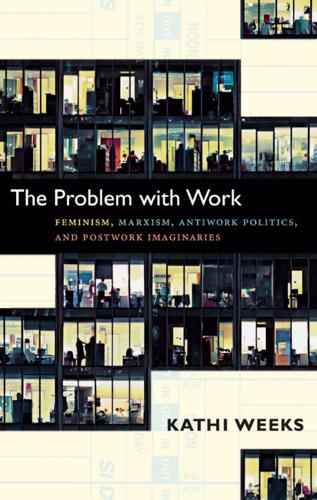
The Problem With Work: Feminism, Marxism, Antiwork Politics, and Postwork Imaginaries
by
Kathi Weeks
Published 8 Sep 2011
But let me add one caveat: rather than conceiving class groupings and relations as the ground of antiwork politics, as that which provides its fuel and organizational form, it might be better to think of them as what might emerge from these efforts. By this reading, class formation, or what the autonomist tradition calls class composition, is best conceived as an outcome of struggles rather than their cause. The particular composition of the working class that might emerge from this politics of work—that is, the collectivities that might coalesce around its issues and the divisions that might develop in the interstices of antiwork struggles and in relation to postwork imaginaries—remains an open question.
…
The critical practice at the heart of the refusal of work, as I read it here, is at once deconstructive and reconstructive—or, as the autonomists might describe it, a practice of separation and process of self-valorization—an analysis that is committed at once to antiwork critique and postwork invention. In keeping with this dual focus of the refusal of work, chapter 3 marks a shift in the project from the critical charge I just described to the task of constructing possible alternatives, from the development of an antiwork critique to the incitement of a postwork political imaginary. More specifically, the argument shifts at this point from a focus on the refusal of work and its ethics to the demands for a guaranteed basic income (chapter 3) and for a thirty-hour work week (chapter 4).
…
Indeed, extending the refusal of work into the field of unwaged domestic work undercuts some of feminism’s traditional critical standpoints: the critique of a normative expectation of domesticity for women from the standpoint of the benefits and virtues of waged work, and the critique of the heartless world of exploitative waged work from the perspective of domestically cultivated caring ethics or nonalienated craft production. Rather than critique either work or family from the standpoint of the other, this feminist version of the refusal of work encompasses both as sites and objects of refusal. This broader project of refusal poses challenges both for antiwork critique and postwork imagination. Feminist antiwork critique would need to accomplish several things at once: to recognize unwaged domestic work as socially necessary labor, contest its inequitable distribution (the fact that gender, race, class, and nation affects who does more or less), and, at the same time, insist that valuing it more highly and distributing it more equitably is not enough—the organization of unwaged reproductive labor and its relationship with waged work must be entirely rethought.
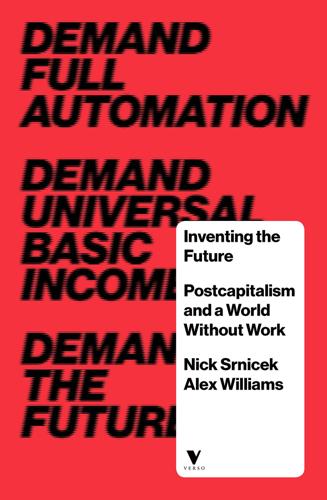
Inventing the Future: Postcapitalism and a World Without Work
by
Nick Srnicek
and
Alex Williams
Published 1 Oct 2015
The difference between a populist movement and folk-political approaches lies in this stance towards differences: whereas the former seeks to build a common language and project, the latter prefers differences to express themselves as differences and to avoid any universalising function. The mobilisation of a populist movement around anti-work politics would require articulating a populism in such a way that a variety of struggles for social justice and human emancipation could see their interests being expressed in the movement. Importantly, anti-work politics provides such resources: for example, it is perhaps the best option for a red-green coalition, insofar as it overcomes the tensions between an economic programme of jobs and growth and an environmental programme of decreased carbon emissions.
…
Demands form a key medium for building unity, and must therefore connect in multiple ways with different people.27 Such demands do not presume to know in advance who will be called into action by them, but they allow people to see their own particular interests within them while nevertheless maintaining their differences from each other.28 For example, the demands of an anti-work politics have different meanings for a university student, a single mother, an industrial worker, and those outside the labour force; but in spite of these differences, each of them can find their own interests represented in the call for a post-work society. Mobilising these people together and under the name of a demand then becomes the work of on-the-ground politics.
…
Steven Greenhouse, ‘$15 Wage in Fast Food Stirs Debate on Effects’, New York Times, 4 December 2013. 162.Paul Lafargue, ‘The Right to Be Lazy’, in Bernard Marszalek, ed., The Right to Be Lazy: Essays by Paul Lafargue (Oakland: AK Press, 2011), p. 45. 163.For thoughts on how this might practically be achieved, see Angela Y. Davis, Are Prisons Obsolete? (New York: Seven Stories, 2003), Chapter 6. 6. POST-WORK IMAGINARIES 1.Both explicitly and implicitly, this chapter owes much to Kathi Weeks’s work. See Kathi Weeks, The Problem with Work: Feminism, Marxism, Antiwork Politics, and Postwork Imaginaries (Durham, NC: Duke University Press, 2011). 2.‘Communiqué from an Absent Future’, We Want Everything, 24 September 2009, at wewanteverything.wordpress.com. 3.Ben Trott, ‘Walking in the Right Direction?’ Turbulence 1 (2007), at turbulence.org.uk; Marco Desiriis and Jodi Dean, ‘A Movement Without Demands?’

Marx at the Arcade: Consoles, Controllers, and Class Struggle
by
Jamie Woodcock
Published 17 Jun 2019
That same code traveled a far way to the staircase of my family friend’s home so that I could play the game. Another successful puzzle game, Solitaire, was bundled with Windows 3.0 on the PC in 1990, leading to millions of new players, many of whom may have never played on consoles. In offices across the world, people found a new outlet for anti-work boredom. While consoles were becoming popular household items, this computer product reached an entirely new audience. The next stage of the competition between Sega and Nintendo began with the launch of the Mega Drive / Genesis, featuring Sonic the Hedgehog. The console went on to sell 30 million units.65 This was followed by the Super Nintendo Entertainment System (SNES), which sold almost 50 million units.66 This, too, has been refreshed in the recently released (and now very wordy) Nintendo Classic Mini Super Nintendo Entertainment System, which allows nostalgic players to play classic 16-bit games like Star Fox 2, F-Zero, Street Fighter II Turbo, Super Mario World, Super Mario Kart, and The Legend of Zelda: A Link to the Past on modern flat-screen TVs.
…
Interestingly, in a survey by Forbes, 69 percent of users of Pokémon GO said they played the game while at work, indicating the level of boredom many of us face at work in our daily lives.35 While playing Pokémon GO at work is not going to change the world, the anti-work appropriation of gamification on workers’ terms should be celebrated. The widespread adoption of smart-phones has meant that many workers have found ways to access videogames away from the electronic supervision of their work computer. Pokémon GO was clearly able to capitalize on this anti-work sentiment, as the augmented reality (AR) mobile game was downloaded over 100 million times on Google Play and generated $200 million in sales. Nintendo’s share price initially soared.
…
Companies like Atari promised “play as work” as an alternative to the restrictive conditions of industrial or office-based Fordism. This was an early innovation of the “work hard, play hard” workplace culture that would become so influential in Silicon Valley. However, the company later sold out to the decidedly non–anti-work Warner Communications.43 Around the same time, in 1973, David Ahl published 101 BASIC Computer Games, which included code for the games Chomp, a two-player strategy game; Hexapawn, a smaller pawn-only chess game; Hamurabi, a text-based resource management game; Nim, discussed earlier; and Super Star Trek, a very popular text-based game where the player commands the USS Enterprise.
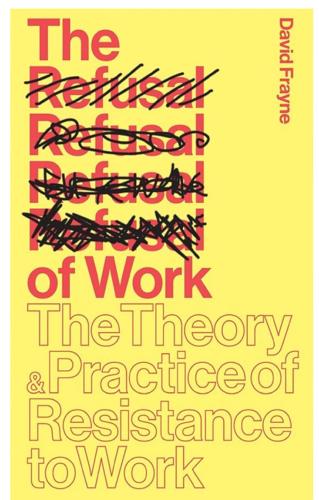
The Refusal of Work: The Theory and Practice of Resistance to Work
by
David Frayne
Published 15 Nov 2015
What is important is that the neo-proletariat were understood by Gorz not as revolutionary political subjects (i.e., they were not a replacement for Marx’s revolutionary proletariat), but as the embodiment of a cultural disillusionment with work that had yet to find collective expression or political purchase. The anti-work sensibilities that he believed were mounting constituted a revolution only in people’s hearts and minds, but whether this supposed disaffection with work would be translated into a genuine social alternative remained to be seen. Today, many who call for a re-evaluation of work remain confident about the existence of a cultural undercurrent in which people are actively questioning the extent to which work is worth their time.
…
She was thinking about training to be a psychotherapist. The important thing for her was that she live with intention: ‘I’m crafting my own life.’ The key point we can take from these accounts of the breakpoint is that, whether people had reduced their hours or given up work altogether, they had not done so according to some kind of crude, anti-work morality, but according to a strongly felt desire to do more. The stories that people told about their jobs show how the desire for resistance can be fuelled by the lack of meaning and autonomy in employment. Functional social roles such as a paid job can never be identical with the complex, fully rounded people who are forced to inhabit them.
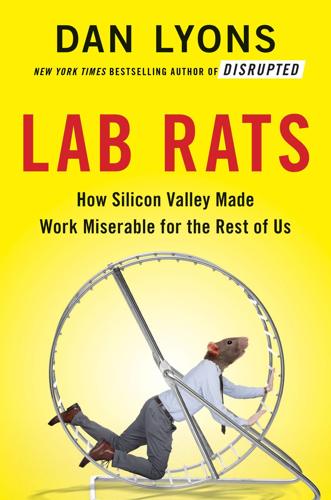
Lab Rats: How Silicon Valley Made Work Miserable for the Rest of Us
by
Dan Lyons
Published 22 Oct 2018
When the IPO finally happens, a few people at the top get incredibly rich, and everyone else gets little or nothing. My fear is that in their desire to imitate Silicon Valley tech companies, companies from other industries will adopt its methods and mores, including its new compact with labor and its high-stress, anti-worker philosophy. In 2017, Whole Foods Market, which for two decades was known for its fantastic, worker-friendly culture, was acquired by Amazon. Almost overnight, the culture of Whole Foods was destroyed, as Amazon imposed its ruthless number-crunching management style. The danger is what might happen next.
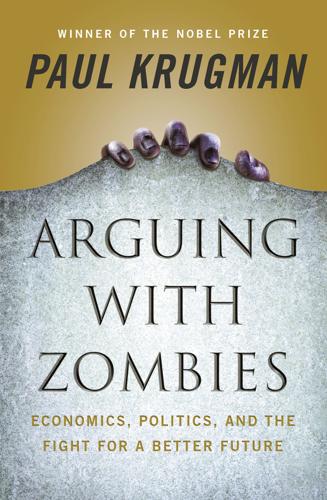
Arguing With Zombies: Economics, Politics, and the Fight for a Better Future
by
Paul Krugman
Published 28 Jan 2020
There’s a lot we don’t know about Kavanaugh, partly because Senate Republicans are blocking Democratic requests for more information. But we do know he’s starkly, extremely, anti-labor—way to the right of the mainstream, and well to the right even of most Republicans. The best-known example of his radically anti-worker views is his argument that SeaWorld shouldn’t face any liability after a captive killer whale killed one of its workers, because the victim should have known the risks when she took the job. But there’s much more anti-labor extremism in his record. When you bear in mind that Kavanaugh, if confirmed, will be around for a long time, this extremism is enough to justify rejecting his nomination—especially when added to his support for unrestricted presidential power and whatever it is in his record that Republicans are trying to hide.
…
.: on income gains, 279–81 Office of Tax Analysis, 278 partisan functions of, 26 and Social Security, 16 Trichet, Jean-Claude, 161 “Triumph of Macroeconomics, The” (Krugman), 103–5 Trotsky, Leon, 324 trucking industry, 290 Trump, Donald: attacks on media by, 347 attitude toward truth, 364–66 belligerent ignorance of, 246, 307, 337, 345, 346–47, 352 campaigning, 309, 370 contempt for rule of law, 252, 256, 347 corruption of, 335–37, 338, 343, 349, 350, 368, 389 and cronyism, 256, 343 as deal-maker, 348–50 election of (2016), 13, 343, 372, 375, 387–89 family history of, 348–49 foreign dictators admired by, 346–47, 365, 371 humiliating others, 352–53 and inequality, 260, 291 and international trade, 245, 246, 247–48, 249, 252–53, 254–56, 353, 361 laziness of, 352 as liar, 348, 353, 364, 365 on manhood, 370, 371, 372 on neo-Nazis as “very fine people,” 365 and populism, 351–53 and racism, 246, 310, 360 and Republican Party, 335–37, 359, 372 scandals about, 388–89 and socialism, 322–23 State of the Union address (2019), 207–9, 322 supporters scammed by, 353, 372, 389 and taxes, 216, 221–23, 224–26, 227–29, 230–33, 306–7, 308, 350, 361, 371 tax returns of, 359 tough-guy posturing by, 334, 346–47, 370–72 and 2020 election, 227, 347, 361 and the wall, 370, 371 Trump, Fred (father), 348 Trump administration: anti-science views of, 332 as anti-worker, 351–53 appointments to, 352 bad faith of, 151, 332, 365 charlatans and cranks in, 149, 151, 329, 331, 333 climate change deniers in, 329–31, 332–34, 335–37 and collapse of freedom, 187 compared to that of G. W. Bush, 9, 13 and conspiracy theories, 150, 337, 343, 345, 365 corruption of, 70, 246, 331, 338, 343, 349, 350 depravity of, 332–33, 334 and “fake news,” 375–76 and health care, 70, 71, 75, 77–78, 308, 351–52 and immigration, 387 investigations of, 347, 359 labor policy of, 352 lying by, 225 political disaster, 158 and tax scam, 221–23, 224–26 trade war of, 353, 361, 371–72 the worst and the dimmest in, 151 Trump family, investments of, 371 Trumpism, 335–37, 343, 345–46, 347, 359–60, 370–72 Trumpocracy, (Frum), 369 Trump Organization, contributions to, 371 Trump University, 388, 389 trust: collapse of, 90, 145 in economic theory, 132, 134 truth, 364–66 Turkey, Erdogan regime in, 346 Twinkie Era, 218–20 “Ultimate Zombie, The” (Krugman), 215–17 unemployment: and austerity, 164, 203 causes of, 81, 96, 133, 139, 144, 158–59 and consumer spending cuts, 107 cyclical, 170–71, 170, 383 and deficit reduction, 208 and education, 166–67 and the Fed, 150 and “full” employment rate, 96, 114, 153, 205, 383, 408 and government stimulus, 113, 115, 144 and Great Depression, 131, 215 and income levels, 275 and inflation, 124, 383 and interest rates, 153, 208 long-term, 167 NAIRU, 114 “natural” level of, 133 by occupation, 170–71, 170 and Okun’s Law, 113 rates of, 106, 108 and recessions, 133, 157, 215 and “skills gap,” 159, 166–68, 290 structural, 169–71, 383–84, 385 and wages, 179 in winter of debt, 203 unemployment insurance, 106 unfair practices, and tariffs, 251–52, 255 unions: bargaining power of, 218–19, 220, 289 decline of, 289–90 vs. monopsony power, 317 United Nations (U.N.), 244 United States: central bank of, see Federal Reserve democracy in danger in, 366, 367–69 unnecessary misery in, 321 Urban Institute, 57, 279, 280 values, 3 Venezuela: economic disaster in, 313, 317, 319, 323, 324 nationalization of industry in, 323 “Very Serious People” (Krugman), 157–59, 160, 189, 375 Veterans Health Administration (V.H.A.), lean and efficient system of, 40, 41–43 Victorian Era, virtues of, 286 Vishny, Robert, 146 Voltaire, on the best of all possible worlds, 135 Voting Rights Act, 300 wage gap, 286 wage-price spiral, 126, 127 wage stagnation, 92, 168, 288, 289 Wallace, George, 310 Wall Street Journal, The, 271, 273, 279–80 Warren, Elizabeth, 210, 211–12, 238–40, 309 Washington Post, The, 303 wealth distribution: historical estimates of, 270 and income inequality, 274–75, 282, 284 Wealth of Nations, The (Smith), 132 wealthy: and capital gains, 273 concentration of, 238, 349 conservatives, 149 cutting taxes on, 4, 7, 20, 30, 51, 69, 196, 199, 200, 201, 215–17, 218–20, 221–23, 224, 227, 229, 236–37, 308, 309, 351, 355, 370, 371 donors to Republican Party, 370 exploding incomes of, 92, 283 health coverage for, 36, 39 idolizing of, 94 incentive effects on, 235 and income distribution, 265–66, 266, 267, 269–70, 273; see also income inequality income from assets, 221, 233 income from earnings, 349 increasing taxes on, 66, 211–12, 220, 238–40, 307, 309, 310, 324, 380 as Masters of the Universe, 270 and monopoly power, 236 optimal tax rates on, 235–37, 236 “stealth politics” of, 240 tax avoidance vs. evasion by, 349–50 as too rich, 274–75 and Trumpism, 343 Weigel, Dave, 28 welfare, 126 West Virginia, Republican Party in, 359 What’s the Matter with Kansas?
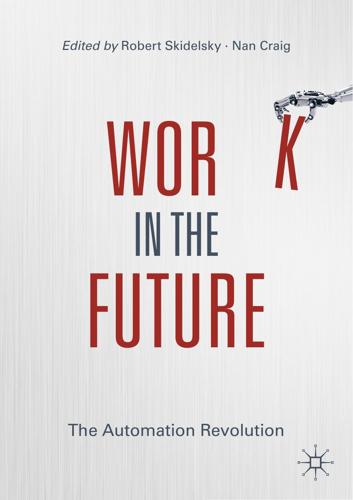
Work in the Future The Automation Revolution-Palgrave MacMillan (2019)
by
Robert Skidelsky Nan Craig
Published 15 Mar 2020
It is possible to reconcile the idea that humans need purposeful work (and sometimes even structured obligations) with the idea that fewer jobs could be desirable, as long as we acknowledge that life is full of unpaid obligations. 8 Work as an Obligation 79 If we pull back from distant-future utopias and address the here-and- now instead, anti-work arguments are a reasonable corrective to our excessive valorisation of work. Feminist anti-work arguments (for instance in Kathi Week’s The Problem with Work6) are particularly strong, contradicting the liberal-feminist and Marxist-feminist assumption that full- time paid work is unequivocally a good thing for women. The full entry of women into the job market has been achieved with no systematic provision at all for reassigning all the non-paid work they had previously done.
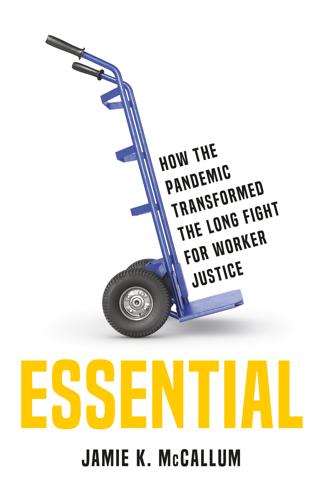
Essential: How the Pandemic Transformed the Long Fight for Worker Justice
by
Jamie K. McCallum
Published 15 Nov 2022
The popular impression was that American workers were taking cues from the original slacker himself, Bartleby the scrivener, Herman Melville’s recalcitrant low-level clerk who, when told repeatedly to work, responded simply, “I would prefer not to.” In November, the Financial Times even published a piece on the explosive growth of Reddit’s “antiwork” forum, as if millions of unemployed Americans might suddenly be tempted by the allure of anarchism.17 Actually, the historic quit rates were concentrated in sectors such as retail, food service, hospitality, and healthcare, where exposure to the virus combined with low wages and long hours led to unsafe working conditions and poor quality of life.
…
They showed a shift away from career-oriented goals to more time-rich experiences with plentiful leisure. Though we were assaulted with articles urging us to use the pandemic productively, as if COVID-19 was a sabbatical, there seemed to be a greater recognition that the amount of time people spend at dead-end jobs simply isn’t worth it. Even in good times we need a robust antiwork policy framework. Social reproduction can’t happen if we’re all in full-time jobs. The nine-to-five grind is simply incompatible with a future that makes life worth living—and with getting all the dishes done. We must first separate healthcare from work, and then we must reduce work time to a minimum.
…
Derek Thompson, “The Great Resignation Is Accelerating,” The Atlantic, October 15, 2021, www.theatlantic.com/ideas/archive/2021/10/great-resignation-accelerating/620382/; Josh Eidelson, “‘Suicide Shifts,’ 7-Day Weeks Fuel Rare Flare-Up in U.S. Strikes,” Bloomberg, October 25, 2021, www.bloomberg.com/news/articles/2021-10-25/-suicide-shifts-7-day-weeks-fuel-rare-flare-up-in-u-s-strikes. 17. Taylor Nicole Rogers, “Reddit ‘Antiwork’ Forum Booms as Millions of Americans Quit Jobs,” Financial Times, January 9, 2022, www.ft.com/content/1270ee18-3ee0-4939-98a8-c4f40940e644. 18. Kim Parker, Ruth Igielnik, and Rakesh Kochhar, “Unemployed Americans Are Feeling the Emotional Strain of Job Loss; Most Have Considered Changing Occupations,” Fact Tank (blog), Pew Research Center, February 10, 2021, www.pewresearch.org/fact-tank/2021/02/10/unemployed-americans-are-feeling-the-emotional-strain-of-job-loss-most-have-considered-changing-occupations/. 19.
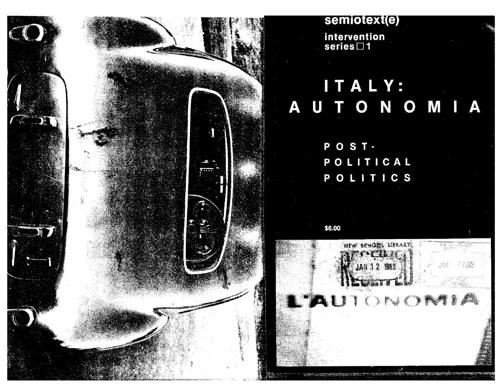
Autonomia: Post-Political Politics 2007
by
Sylvere Lotringer, Christian Marazzi
Published 2 Aug 2005
The circle closes; what was previously defined as a lower-la-middle bourgeoisie in receipt of revenue (ie a privileged class), is now stamped as a frustrated "lumpenbourgeoisie", as "youth desperation", as "marginality" - in other words, as a perverse effect, created by the crisis, of a mechanism which had been ori9inally croated and conceived as a means of stabilising the system and acting (though this is now quietly forgotten) in an anti-worker functionJ BLOCKING WORKING CLASS AUTONOMY, OCCUPYING THE POLITICAL SPACES. It is not easy to untangle the mass of lies and half·truths which are contained In this distorted version of the class dynamic. The best answer is to return to the roots of where it all began - the cycle of working class struggles of 1968-69.
…
They compialn, in other words, that the prospect of jabs that dIffer from factory work is not a sufficient incentive to productive labour, but rather acts as a signpost towards receipt of income in the sphere of circulation, towards the world of revenue (money as money, removed from the cIrcuit of productive capital). At this point the Whole "party system" joins in the great debate on the reproduction of classes in Italy, its distortions, imbalances etc., the general conclusion being that it is not sufficient to reprodUce a lower-to-middle bourgeoIsie in an anti-working class rOie, if this then becomes an unproductive class in receipt of revenue! Andso the scapegoat mythOlogy of "Hunt the Parasite" - the Iynchpin of the c:isis ideology - comes to the fore. Backed by the "scientific" revelations of Sylos Labini, GOfferi, etc, this game now starts In earnast. A sort of vague eg,alitarlanlsm emerges, which scrutinises the income of the clerical worker the student and the tertiary worker, and says nothing, for example, about the tr~nsfor. .matlon of capltal-which.ls-product!
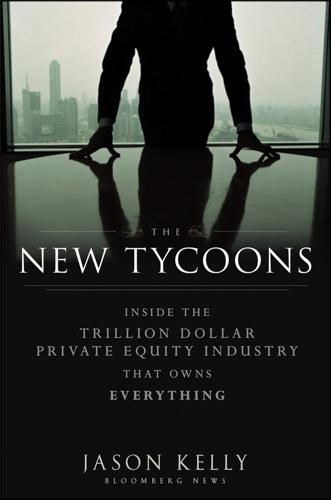
The New Tycoons: Inside the Trillion Dollar Private Equity Industry That Owns Everything
by
Jason Kelly
Published 10 Sep 2012
We talked about the conundrum of private-equity firms including TPG investing on behalf of pensions while simultaneously taking actions that affect the very people for whom those pensions are a promise. It’s a case the private-equity managers make more and more—that they are a vital participant in the retirement system for millions of U.S. workers. The Teamsters, in the flyer, put it this way: “The reality is these pension plans are helping to fund TPG’s anti-worker investments.” Sterba said, “It’s like cutting off your nose to spite your face. You gotta give the incentives for the workforce to stay with you.” For him, the upshot was that seemingly small difference in his monthly check. “I’m missing a hundred bucks a month. It may not seem like a lot, but to someone on a fixed income, it sure feels like it.”
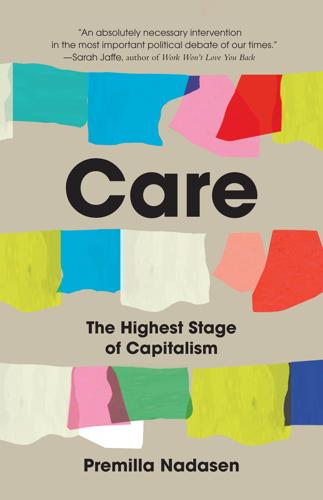
Care: The Highest Stage of Capitalism
by
Premilla Nadasen
Published 10 Oct 2023
Nadasen, Welfare Warriors, Annelise Orleck, Storming Caesar’s Palace: How Black Mothers Fought Their Own War on Poverty (Boston: Beacon Press, 2005); Mary Eleanor Triece, Tell It Like It Is: Women in the National Welfare Rights Movement (Columbia SC: University of South Carolina Press, 2013). Rosie C. Bermudez, “Recovering Histories: Alicia Escalante and the Chicana Welfare Rights Organization, 1967–1974” (PhD dissertation, California State University, 2010); Wilson Sherwin, “‘Nothing but Joy’: The Welfare Rights Movement’s Antiwork Freedom Dream,” Souls: A Critical Journal of Black Politics, Culture and Society 22, no. 2–4 (2020): 185–212; Frances Fox Piven and Richard Cloward, Poor People’s Movements: Why They Succeed, How They Fail (New York: Vintage, 1978). Guida West, The National Welfare Rights Movement: The Social Protest of Poor Women (New York: Praeger, 1981); Martha F.
…
Red Nation, “Communism is the Horizon, Queer Indigenous Feminism is the Way,” September 21, 2020, https://therednation.org/communism-is-the-horizon-queer-indigenous-feminism-is-the-way/. 54. Melanie K. Yazzie and Cutcha Risling Baldy, “Introduction: Indigenous Peoples and the Politics of Water,” Decolonization: Indigeneity, Education & Society 7, no. 1 (2018): 1–18. 55. Kathi Weeks, The Problem with Work: Feminism, Marxism, Antiwork Politics, and Postwork Imaginaries (Durham: Duke University Press, 2011). 56. For a distinction between work and labor, see Isabella Bakker and Stephen Gill, “Ontology, Method, and Hypotheses” in Power, Production and Social Reproduction: Human In/security in the Global Political Economy, ed. Isabella Bakker and Stephen Gill (London: London: Palgrave Macmillan, 2003), 17–41. 57.
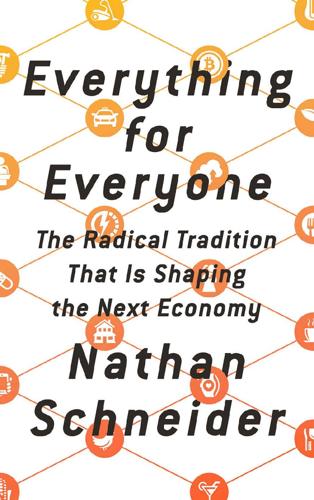
Everything for Everyone: The Radical Tradition That Is Shaping the Next Economy
by
Nathan Schneider
Published 10 Sep 2018
Chapter 3: The Clock of the World 1. See the final summary of her thinking, Grace Lee Boggs with Scott Kurashige, The Next American Revolution: Sustainable Activism for the Twenty-First Century, 2nd ed. (University of California Press, 2012). 2. See Kathi Weeks, The Problem with Work: Feminism, Marxism, Antiwork Politics, and Postwork Imaginaries (Duke University Press, 2011). 3. Jared Bernstein coined the term based on 2011 Bureau of Labor Statistics data comparing productivity to private-sector employment: Bernstein, “The Challenge of Long Term Job Growth: Two Big Hints,” On the Economy (blog) (June 5, 2011), jaredbernsteinblog.com/the-challenge-of-long-term-job-growth-two-big-hints; Andrew McAfee, “Productivity and Employment (and Technology): In the Jaws of the Snake” (March 22, 2012), andrewmcafee.org/2012/03/mcafee-bernstein-productivity-employment-technology-jaws-snake.
…
Magazine (December 9, 2015); Foster’s and Hughes’s organization is called the Economic Security Project, and more about its approach can be found in Chris Hughes, Fair Shot: Rethinking Inequality and How We Earn (St. Martin’s Press, 2018). 18. Cryptocurrency basic-income projects go by such names as Circles, Grantcoin, Group Currency, and Resilience; they interact at reddit.com/r/CryptoUBI. 19. Kathi Weeks, The Problem with Work: Feminism, Marxism, Antiwork Politics, and Postwork Imaginaries (Duke University Press, 2011); Andy Stern and Lee Kravitz, Raising the Floor: How a Universal Basic Income Can Renew Our Economy and Rebuild the American Dream (PublicAffairs, 2016). 20. “Black Cooperatives and the Fight for Economic Democracy,” session at the Left Forum at the John Jay College of Criminal Justice (May 31, 2015); see also Marina Gorbis’s calls for “universal basic assets” rather than merely income. 21.
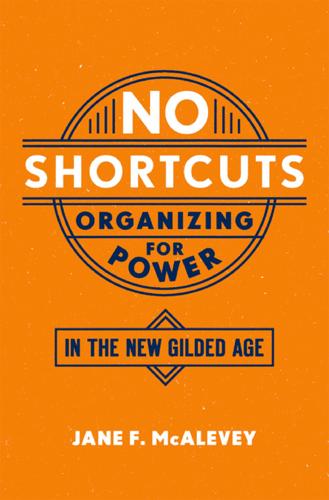
No Shortcuts: Organizing for Power in the New Gilded Age
by
Jane F. McAlevey
Published 14 Apr 2016
“By far, the chapter in Light of Freedom which has been least commented upon by reviewers is chapter 12 with its discussion of various corruptions within the movement.”21 When the discussion is about the labor movement, the reverse is almost always true: The focus seems to be mostly on internal corruption and rarely on the movement’s moral crusade for worker dignity in a viciously antiworker economy. Yet high-participation organizing under high-risk conditions, using high moral standards, has continued; the lessons abound. New Labor’s Response to the Crisis of the Union Movement Unions in the United States are experiencing a profound crisis. In 1995, the biggest shake-up in the U.S. labor movement in more than fifty years took place when a new generation of unionists forced the first contested election in the history of the American Federation of Labor–Congress of Industrial Organizations (AFL-CIO).
…
In addition, the NLRB ordered the company to have an actual NLRB agent enter the factory and over the course of several days read the order aloud in employee meetings. The court also ordered a new election, but the union understood by now that a third election undertaken without some form of preagreement for employer neutrality, union access to the inside of the facility, and an accord limiting company antiworker behavior would be a disaster. The union’s first goal became securing a “card check and neutrality agreement,” requiring the employer to legally recognize the union as the certified collective bargaining agent once a majority of workers had signed union authorization cards. The conditions at the Smithfield Tar Heels factory were so bad before the union came that some workers joked that there was 100 percent turnover every day.
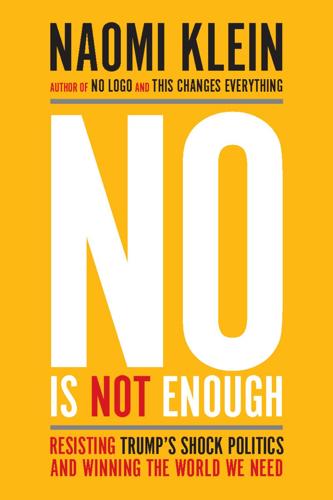
No Is Not Enough: Resisting Trump’s Shock Politics and Winning the World We Need
by
Naomi Klein
Published 12 Jun 2017
Andrew Puzder: “They never take a vacation…” Kate Taylor, “Fast-Food CEO Says He’s Investing in Machines Because the Government Is Making It Difficult to Afford Employees,” Business Insider, March 16, 2016, http://www.businessinsider.com/carls-jr-wants-open-automated-location-2016-3. Charles Schumer: Puzder “probably the most anti-worker” choice ever Tim Devaney, “Schumer: Trump Should Drop Labor Nominee,” The Hill, February 9, 2017, http://thehill.com/homenews/senate/318694-schumer-trump-should-drop-labor-nominee. Puzder: worth an estimated $45 million Chase Peterson-Withorn, “Here’s What Each Member of Trump’s $4.5 Billion Cabinet Is Worth,” Forbes, December 22, 2016, https://www.forbes.com/sites/chasewithorn/2016/12/22/heres-how-much-trumps-cabinet-is-really-worth/#3105c4371698.
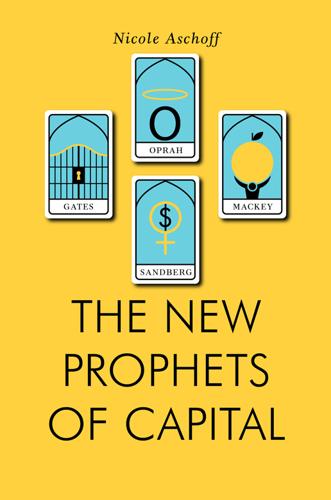
The New Prophets of Capital
by
Nicole Aschoff
Published 10 Mar 2015
Social movements are also telling stories and developing projects that radically challenge the capitalist status quo through an emphasis on democracy, de-commodification, and redistribution. These stories and projects foster a new vision of society—a society designed for people instead of profit. ________ 1Luc Boltanski and Eva Chiapello, The New Spirit of Capitalism, London: Verso, 2007. 2See Kathi Weeks, The Problem with Work: Feminism, Marxism, Antiwork Politics, and Postwork Imaginaries, Durham, N.C.: Duke University Press, 2011. 3“The Crisis of Democracy: Report on the Governability of Democracies to the Trilateral Commission,” quoted in Noam Chomsky, “The Carter Administration: Myth and Reality,” Australian Quarterly 50: 1, 1978, 8–36. 4Francesca Polletta, It Was Like a Fever: Storytelling in Protest and Politics, Chicago: University of Chicago Press, 2006. 5David Harvey, “The Enigma of Capital and the Crisis This Time,” in Craig Calhoun and Georgi Derluguian, eds., Business as Usual: The Roots of the Global Financial Meltdown, New York: New York University Press, 2011. 6Miles Rapoport and Jennifer Wheary, Where the Poor and the Middle Class Meet, New York: Demos, 2013. 7There are many prophets of capitalism telling stories today.

Everyday Utopia: What 2,000 Years of Wild Experiments Can Teach Us About the Good Life
by
Kristen R. Ghodsee
Published 16 May 2023
i-D Vice, January 28, 2021, https://www.i-d.vice.com/en_uk/article/v7mqm9/should-you-join-a-commune-in-2021-tiktok-says-yes. 38 Antonio Gramsci, Prison Notebooks (New York: Columbia University Press, 2011). 39 Ryan Grim, “The Elephant in the Zoom,” The Intercept. June 14, 2022, https://www.youtube.com/watch?v=n1xp50ZM_wk. 40 Kathi Weeks, The Problem with Work: Feminism, Marxism, Antiwork Politics, and Postwork Imaginaries (Durham, NC: Duke University Press, 2011). 41 Holly Jean Buck, After Geoengineering: Climate Tragedy, Repair, and Restoration (London and New York: Verso Books, 2019). 42 Howard Zinn, “The Optimism of Uncertainty,” The Nation, 2004, https://www.thenation.com/article/archive/optimism-uncertainty/. 43 Donna Haraway suggests that we should all be “making kin.”
…
Psychology of Hope: You Can Get Here from There. New York: Free Press, 2003. Solnit, Rebecca. Hope in the Dark: Untold Histories, Wild Possibilities. Chicago: Haymarket Books, 2016. Soper, Kate. Post-Growth Living: For an Alternative Hedonism. New York: Verso Books, 2020. Weeks, Kathi. The Problem with Work: Feminism, Marxism, Antiwork Politics, and Postwork Imaginaries. Durham, NC: Duke University Press, 2011. Wells, H. G. A Modern Utopia. Project Gutenberg, https://www.gutenberg.org/ebooks/6424. ———. Men Like Gods. Mineola, NY: Dover, 2016. ———. The First Men in the Moon. Project Gutenberg, https://www.gutenberg.org/ebooks/1013.
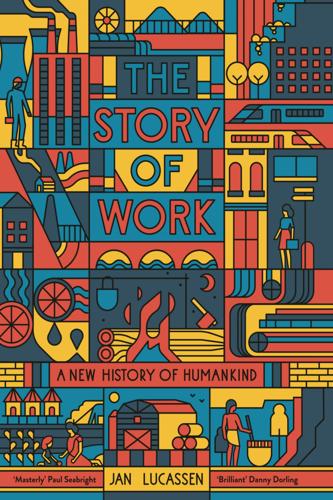
The Story of Work: A New History of Humankind
by
Jan Lucassen
Published 26 Jul 2021
Guendelsberger 2019; Greenhouse 2019; Jaffe 2021; and the sweating phenomenon (see pp. 329–31). 28. Ford 2017; Baldwin 2019; Garcia-Murillo & MacInnes 2019; cf. Benner 2002 and 2003; Suzman 2020, ch. 15. 29. Quotation in Sloman 2019, 69; Brynjolfsson & McAfee 2014; Livingston 2016. 30. Ford 2017, 167. 31. Cf. Deakin & Wilkinson 2005. 32. I am aware that this goes against the idea of ‘anti-work politics’ (Weeks 2011). 33. Arendt 1958, 107–8 (perhaps superfluously, the final sentence should not be interpreted as Christian self-sacrifice, but as a direct physical satisfaction resulting from the performance of an accomplishment). 34. Sennett 2008, 8, 287, 289. 35. Quoted by McBee 2019, 157; cf.
…
Metallurgical Analysis of Chinese Coins at the British Museum (London: British Museum, 2005). Weber, Max. ‘Agrarverhältnisse im Altertum’, in Handwörterbuch der Staatswissenschaften (Jena: Gustav Fischer, 1909), pp. 52–188. Weber, Max. Wirtschaft und Gesellschaft, edited by Johannes Winckelman (Tübingen: Mohr, 1976). Weeks, Kathi. The Problem with Work: Feminism, Marxism, Antiwork Politics, and Postwork Imaginaries (Durham, NC/London: Duke UP, 2011). Weil, David. The Fissured Workplace: Why Work Became So Bad for So Many and What Can be Done to Improve it (Cambridge, MA: Harvard UP, 2014). Weill, Claudie. L’Internationale et l’Autre: Les Relations interethniques dans la IIe Internationale (discussions et débats) (Paris: Arcantère, 1987).
…
If this is true for the birthplace of the Big Mac and Kentucky Fried Chicken, then we can safely apply this observation to the rest of the world and to human history as a whole.3 The problem with such universal definitions is that it is never entirely clear which human pursuits cannot be defined as labour. The Tillys explicitly exclude three types of activities from their definition: ‘purely destructive, expressive, or consumptive acts’.4 They regard purely destructive labour as anti-work, since it does not add use value, rather it deprives commodities of value. This would seem to exclude many or all of the activities of, say, soldiering, due to the undeniably destructive aspects of this profession; but military craftsmanship is work, however, not only because, in practice, daily barrack life is non-destructive, but also because the intention of much, if not all, conscious destruction is to add value to other commodities and services.5 By precluding pure expression and consumption, the Tillys are excluding those activities that, in principle, have no use value for anyone other than the producer himself.
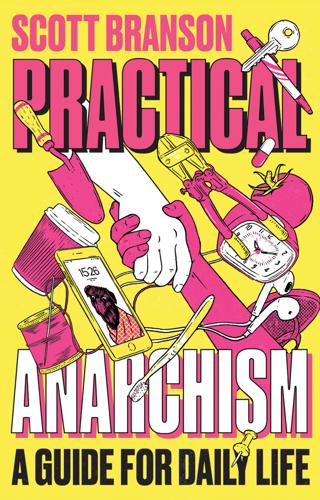
Practical Anarchism: A Guide for Daily Life
by
Scott. Branson
Published 14 Jun 2022
In much liberatory discourse, there is always an emphasis on community, but perhaps this idea of community ends up overemphasizing a kind of connection that often feels unattainable. If we start by saying no, we can learn about saying yes, and thereby form the relationships and webs of care that can actually sustain us. Chapter 3 asks us to disidentify from the moralism of work, to reject competition and thinking our identity is bound with our jobs. Anarchism is anti-work, as a relationship of exploitation under capitalism. One refrain throughout the book is to rethink our ideas of work as labor, in order to reorient towards forms of relating as care. Therefore, we can look at our jobs as places where we can form other relationships and take whatever access we have to resources and share.
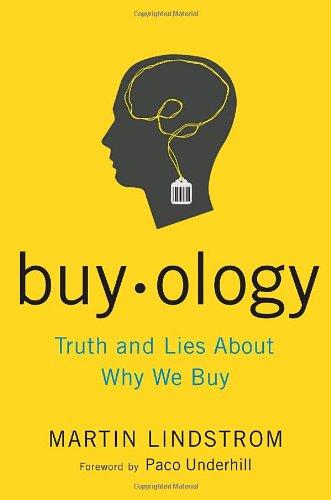
Buyology
by
Martin Lindstrom
Published 14 Jul 2008
He sued Warner Brothers, and the filmmakers, claiming that the subliminal images of a demon’s face flashed throughout the movie had caused him to pass out.4 And in 1999, some viewers accused the makers of the film Fight Club of subliminal manipulation, claiming they had planted pornographic images of Brad Pitt in the movie in a deliberate attempt, according to one Web site, to enhance the film’s “anti-work message and revolutionary tone.” Accusations of subliminal manipulation have been leveled at musicians from Led Zeppelin (play “Stairway to Heaven” backward and you’ll supposedly hear “Oh, here’s to my sweet Satan”) to Queen (“Another One Bites the Dust” played backward allegedly yields “It’s fun to smoke marijuana”).

Valley So Low: One Lawyer's Fight for Justice in the Wake of America's Great Coal Catastrophe
by
Jared Sullivan
Published 15 Oct 2024
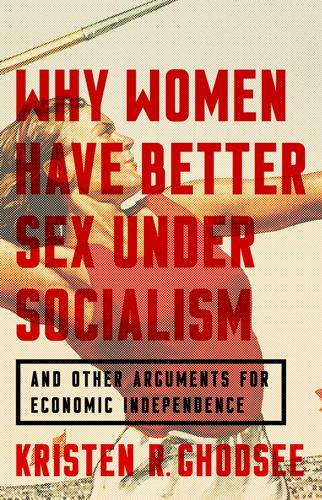
Why Women Have Better Sex Under Socialism: And Other Arguments for Economic Independence
by
Kristen R. Ghodsee
Published 20 Nov 2018
London: Bodley Head, 2017. Verdery, Katherine. What Was Socialism and What Comes Next? Princeton, NJ: Princeton University Press, 1996. Wagenknecht, Sahra. Prosperity Without Greed: How to Save Ourselves from Capitalism. Frankfurt: Campus Verlag Books, 2018. Weeks, Kathi. The Problem with Work: Feminism, Marxism, Antiwork Politics, and Postwork Imaginaries. Durham, NC: Duke University Press, 2011. Weigand, Kate. Red Feminism: American Communism and the Making of the Women’s Movement. Baltimore: Johns Hopkins University Press, 2001. Weigel, Moira. Labor of Love: The Invention of Dating. New York: Farrar, Straus, and Giroux, 2016.

The Road to Wigan Pier
by
George Orwell
Published 17 Oct 1972
All are being robbed and bullied by the same system. Yet how many of them realise it? When the pinch came nearly all of them would side with their oppressors and against those who ought to be their allies. It is quite easy to imagine a middle class crushed down to the worst depths of poverty and still remaining bitterly anti-working class in sentiment; this being, of course, a ready-made Fascist Party. Obviously the Socialist movement has got to capture the exploited middle class before it is too late; above all it must capture the office-workers, who are so numerous and, if they knew how to combine, so powerful. Equally obviously it has so far failed to do so.
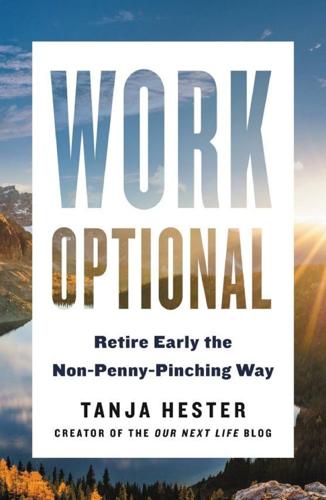
Work Optional: Retire Early the Non-Penny-Pinching Way
by
Tanja Hester
Published 12 Feb 2019
We’re so grateful to have realized that by approaching our money a little differently than most people do, we could reclaim our time and embark on the work-optional life of our dreams. If you’re willing to change your money mindset and occasionally go against what we’re all taught is the “right way” to do things, you can craft the life of your dreams, too. This book is not anti-work. Work is a good and noble thing, something nearly every person ever born has had to do in some form, whether or not they were formally employed. As humans we are wired to be productive, and work provides an outlet for that need. Work can give us a sense of purpose, a sense of contributing to society, and a sense of usefulness.
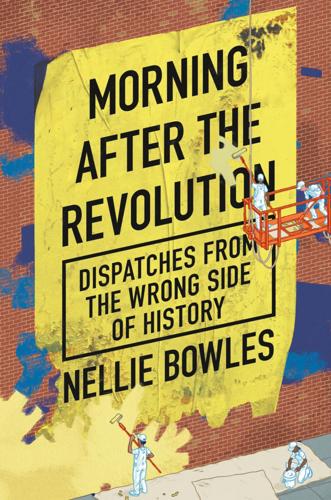
Morning After the Revolution: Dispatches From the Wrong Side of History
by
Nellie Bowles
Published 13 May 2024
“No more Instagrams about rising and grinding,” an opinion writer at The New York Times told us one day in describing the trend. “No more The Wing. No more straining to be smarter than the boys. Bimboism offers an opposing and, to some, refreshing premise: Value me, look at me, not because I’m smart and diligent but for the fact that I’m not. It’s anticapitalist, even antiwork.” * * * ▪ This is a very tetchy group. Even quoting their own words will upset them. It is a group that doesn’t want to be described or named. The words to depict the fleshy reality are themselves now considered off limits. But it is a very interesting group. Feminism is something that’s given me a lot, so I’m invested in where it goes.

Waiting for Superman: How We Can Save America's Failing Public Schools
by
Participant Media
and
Karl Weber
Published 14 Jun 2010
I’ve gotten to know union leaders who I think understand that the reforms we need will mean some serious adjustments on the part of their members, and that we need to rethink the rigid systems we’ve gotten locked into since the New Deal era. At the same time, these progressive union leaders can’t get too far ahead of their members. And they understandably don’t want to give aid and comfort to some politicians who are in fact antiworker and are at least as interested in undermining the power of labor as they are in improving our schools. So these union leaders are walking a political tightrope. I hope that more and more of them will find the courage to do the right things in support of true reform and that they’ll be able to bring the vast majority of union members along with them.
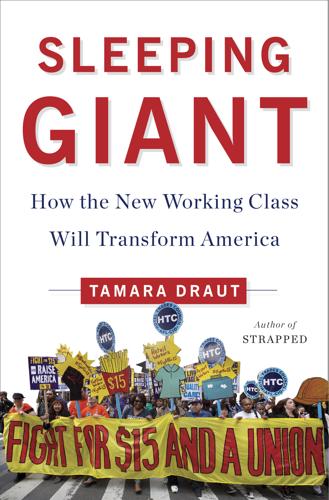
Sleeping Giant: How the New Working Class Will Transform America
by
Tamara Draut
Published 4 Apr 2016
When once a steelworker and an accountant could live on the same block, drive the same car, vacation at the same place, and eat at the same restaurants, over the course of the 1980s, 1990s, and the first decade of the 2000s, the once blurred boundaries of class crystallized into sharp, distinct lines. As the earnings of non-college-educated workers declined significantly under deregulation and antiworker policies that undermined the minimum wage and degraded working conditions, the trajectories of those with and without bachelor’s degrees diverged significantly—and so did the trajectories of their children. Our social circles constricted and our shared experiences evaporated. This tightening of class hierarchies made it hard for those who shape our public debate—journalists, policymakers, public intellectuals—to relate to the lives and struggles of the majority of their fellow citizens: those without college degrees.
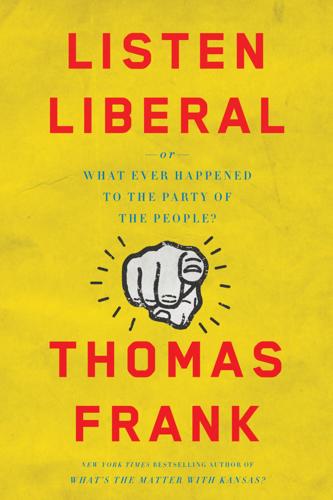
Listen, Liberal: Or, What Ever Happened to the Party of the People?
by
Thomas Frank
Published 15 Mar 2016
The magic derives from the way just about anyone can sign up at one of these sharing companies and work as a sort of temp, only hooked up with the client and employer via software, which makes it all digital and innovative and convenient. In nearly every other way, however, the sharing economy is one of the most lopsided, antiworker employment schemes to come down the pike in many years. The costs and risks associated with this industry—insurance, owning a car, saving for sickness and retirement—are all loaded onto the shoulders of the worker, and yet the innovator back in California who has written the software still helps himself to a large cut of whatever the proceeds of your labor happen to be.

Squeezed: Why Our Families Can't Afford America
by
Alissa Quart
Published 25 Jun 2018
The Ottawa Citizen kvelled: Madeline Ashby, “Ashby: Let’s Talk about Canadian Values (Values Like a Universal Basic Income),” Ottawa Citizen, November 15, 2016, http://ottawacitizen.com/opinion/columnists/ashby-lets-talk-about-canadian-values-values-like-a-universal-basic-income. feminist theorist Kathi Weeks: Kathi Weeks, The Problem with Work: Feminism, Marxism, Antiwork Politics, and Postwork Imaginaries (Durham, NC: Duke University Press, 2011). “no longer socially necessary”: James Livingston, No More Work: Why Full Employment Is a Bad Idea (Chapel Hill: University of North Carolina Press, 2016). the journalist Judith Shulevitz wrote: Judith Shulevitz, “It’s Payback Time for Women,” New York Times, January 10, 2016.
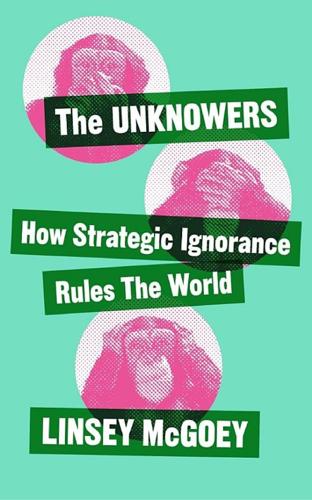
The Unknowers: How Strategic Ignorance Rules the World
by
Linsey McGoey
Published 14 Sep 2019
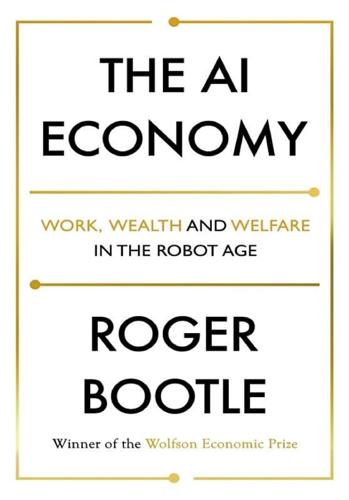
The AI Economy: Work, Wealth and Welfare in the Robot Age
by
Roger Bootle
Published 4 Sep 2019
Actually, for the USA there is a very simple economic explanation of why Keynes’s prophecy has not been fulfilled. Over recent decades, most workers’ wages have not increased. For American males in their thirties, median real wages were lower in 2004 than they had been in 1974.18 (The reasons for this are discussed in Chapter 6.) The anti-work preference We should not blithely accept at face value the “work is fun” explanation for continued long working hours that I discussed above. There is a serious risk of mistaking the fulfillment of some people at work for the experience of everybody. For many people, work isn’t always quite what it is cracked up to be.

The Phoenix Project: A Novel About IT, DevOps, and Helping Your Business Win
by
Gene Kim
,
Kevin Behr
and
George Spafford
Published 14 Jul 2013
But it was only after the Phoenix fiasco that I saw the last one, because of how it prevented all other work from getting completed, and that’s the last category, isn’t it? Firefighting. Unplanned work.” “Precisely!” I hear Erik say. “You even used the term I like most for it: unplanned work. Firefighting is vividly descriptive, but ‘unplanned work’ is even better. It might even be better to call it ‘anti-work,’ since it further highlights its destructive and avoidable nature. “Unlike the other categories of work, unplanned work is recovery work, which almost always takes you away from your goals. That’s why it’s so important to know where your unplanned work is coming from.” I smile as he acknowledges my correct answer, and am oddly pleased that he validated my antimatter notion of unplanned work, as well.
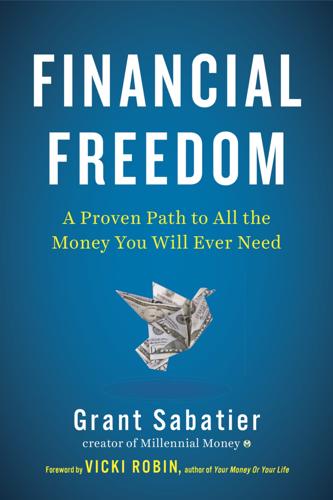
Financial Freedom: A Proven Path to All the Money You Will Ever Need
by
Grant Sabatier
Published 5 Feb 2019
This is why the average American watches 5.4 hours of TV a day. Sure, we have weekends, but how often do you spend those running around trying to catch up on all the errands and chores you didn’t get to during the week? The point is, you are trading the best hours of your week and your life for a paycheck. I’m not anti-work; in fact, I like working. Humans need to work to be happy. But like time, not all work is created equal. There is a huge difference between working at a job you hate, being stuck at a desk or on the clock for forty or more hours a week, and doing work you love and are passionate about, on your own time, and having the freedom to do something else if you want to.
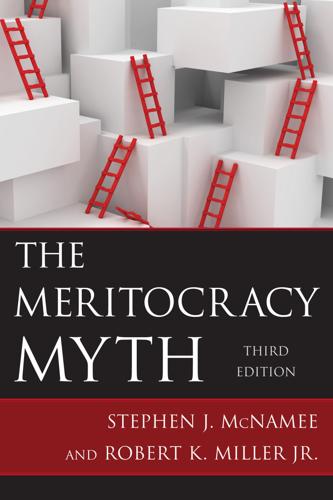
The Meritocracy Myth
by
Stephen J. McNamee
Published 17 Jul 2013
There was a high incidence of early initiation into sexual activity, consensual unions, and familial disruption. Lewis interpreted this subculture of poverty as pathological and self-perpetuating. Poor people hang around with other poor people as these values are reinforced in interaction within the group. Children are socialized into antiwork, antischool, antimarriage, antiauthority values passed on from one generation to the next in what becomes a “vicious cycle of poverty.” One of the central issues in the culture-of-poverty debate is whether poverty creates deviant attitudes or whether deviant attitudes create poverty. For Lewis, it is both.
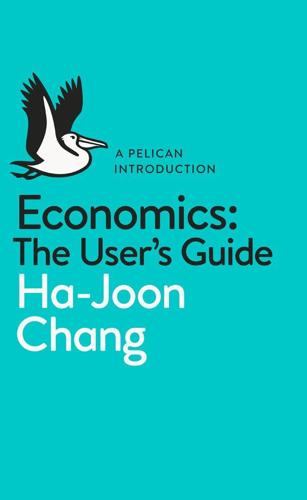
A Pelican Introduction Economics: A User's Guide
by
Ha-Joon Chang
Published 26 May 2014

Border and Rule: Global Migration, Capitalism, and the Rise of Racist Nationalism
by
Harsha Walia
Published 9 Feb 2021
At a press conference with Trump, Bolsonaro proclaimed, “Brazil and the United States stand side-by-side in their efforts to share liberties and respect to traditional and family lifestyles, respect to God, our creator, against the gender ideology of the politically correct attitudes, and fake news.”63 Bolsonaro once pronounced that he would rather his son be dead than gay. Bolsonaro’s rise as a fascist has wedded all these strands: the antipetismo (anti–Workers’ Party) mobilization of the white landowning oligarchy against moderate redistributive reforms, evangelical conservatism, the power of the military establishment, and popular anti-incumbent concerns for security in cities experiencing some of the world’s highest homicide rates, of which 53 percent of victims are Black.64 Like Duterte, Bolsonaro’s strongman image is rooted in penal populism; his signature move is gesturing with both hands, two fingers pointing two guns.
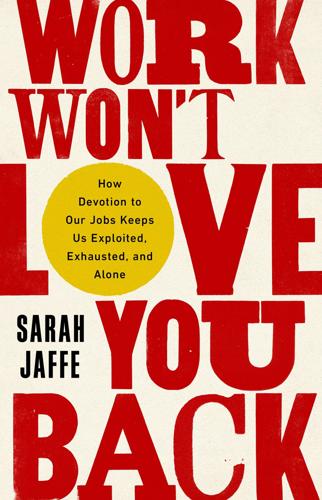
Work Won't Love You Back: How Devotion to Our Jobs Keeps Us Exploited, Exhausted, and Alone
by
Sarah Jaffe
Published 26 Jan 2021
Through sharp analyses of the recent history and social contours of each occupation, Jaffe helps us understand the contemporary landscape and provides tools to contest how we are put to work. The result is a marvelously lucid, thoroughly readable, and wonderfully engaging book.” —Kathi Weeks, author of The Problem with Work: Feminism, Marxism, Antiwork Politics, and Postwork Imaginaries “Sarah Jaffe’s months in the library have built the kind of analysis that you’d find in an institute of advanced study. Her years as a labor reporter have let her see frontlines where others have failed to look. And a lifetime of elegant writing has produced a prose style that pulls you through a book of rare importance.
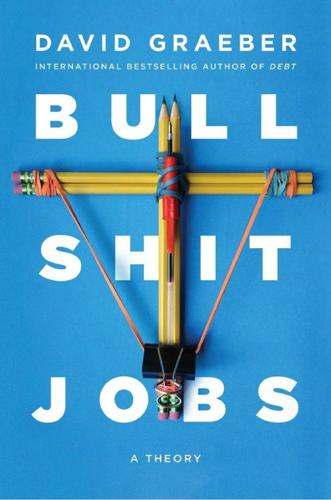
Bullshit Jobs: A Theory
by
David Graeber
Published 14 May 2018
Meaningful Work. Oxford: Oxford University Press, 2016. Wall, Richard. Family Forms in Historic Europe. Cambridge: Cambridge University Press, 1983. Weber, Max. The Protestant Ethic and the Spirit of Capitalism. London: Unwin Press, 1930. Weeks, Kathi. The Problem with Work: Feminism, Marxism, Antiwork Politics, and Postwork Imaginaries. Durham, NC: Duke University Press, 2011. Western, Mark, and Erik Olin Wright. “The Permeability of Class Boundaries to Intergenerational Mobility Among Men in the United States, Canada, Norway, and Sweden.” American Sociological Review 59, no. 4 (August 1994): 606–29.

People, Power, and Profits: Progressive Capitalism for an Age of Discontent
by
Joseph E. Stiglitz
Published 22 Apr 2019
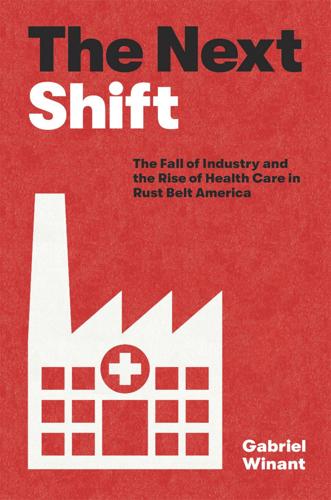
The Next Shift: The Fall of Industry and the Rise of Health Care in Rust Belt America
by
Gabriel Winant
Published 23 Mar 2021
For the first view, see Moishe Postone, Time, Labor, and Social Domination: A Reinterpretation of Marx’s Critical Theory (Cambridge: Cambridge University Press, 1993); Michael Denning, “Wageless Life,” New Left Review 66 (November–December 2010), 79–97; Kathi Weeks, The Problem with Work: Feminism, Marxism, Antiwork Politics, and Post-Work Imaginaries (Durham, NC: Duke University Press, 2011); Aaron Benanav, “Automation and the Future of Work—1,” New Left Review 119 (September–October 2019), 5–38; Aaron Benanav, “Automation and the Future of Work—2,” New Left Review 120 (November–December 2019), 117–146. For more mainstream approaches, see Erik Brynjolfsson and Andrew McAfee, The Second Machine Age: Work, Progress, and Prosperity in a Time of Brilliant Technologies (New York: Norton, 2014); Richard Baldwin, The Globotics Upheaval: Globalization, Robotics, and the Future of Work (New York: Oxford University Press, 2019).

Peggy Seeger
by
Jean R. Freedman
He admits, “Delivering those monologues with Joan sitting about three feet away was one of the scariest things I've ever done.”27 She joined the cast members for a meal afterward. Sandra Kerr, from a working-class family in the East End of London, was disappointed by the formerly radical Littlewood. Kerr explained, “The comments she made about people in the East End of London I found quite anti-working class, and I got angry when she talked about schoolchildren there being completely out of control…. Ewan said afterwards to me that he particularly wanted me to see how reactionary Joan had become.”28 The success of the 1970–71 Festival of Fools gave Ewan hope that he could once again build a workers’ theater like the ones he had known in his youth.
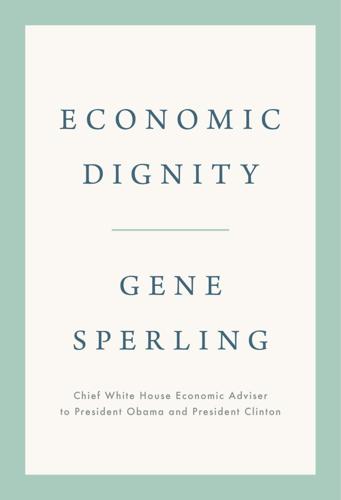
Economic Dignity
by
Gene Sperling
Published 14 Sep 2020
And because more and more companies are using arbitration, workers cannot simply change employers to avoid it. Research by the Economic Policy Institute has found that since 1991, mandatory arbitration has skyrocketed and is now being used by 65.1 percent of companies with one thousand or more employees.92 The prevalence of mandatory arbitration has been enabled by several anti-consumer and anti-worker Supreme Court decisions. In 1925, Congress enacted the Federal Arbitration Act to ensure the validity and enforceability of agreements to settle disputes through arbitration.93 The 1991 Supreme Court decision Gilmer v. Interstate/Johnson Lane Corp. upheld the enforceability of agreements that required employees to go through arbitration to enforce federal civil rights law, in this case the Age Discrimination in Employment Act.94 Other decisions have upheld waivers of class-action rights by consumers and businesses.95 The most recent legal interpretations by a conservative Supreme Court majority have further eroded the ability of workers to join together to enforce their rights.

The Making of Modern Britain
by
Andrew Marr
Published 16 May 2007
Keynes turned the attack back with a famous pamphlet later that year, ‘The Economic Consequences of Mr Churchill’. But Keynes was a rare voice then. Britain was forced off the gold standard again in the economic crisis of 1931 and the experiment was blamed for causing slump and misery. It increased his reputation as a ruthless anti-worker Tory. But at the time Churchill had gone as far in challenging the economic orthodoxy as any chancellor was likely to have done; and it is by no means clear that the gold standard was as decisive as was claimed. Britain had low-investment, poorly managed heavy industries, increasingly challenged by newly industrialized and larger nations.

Bourgeois Dignity: Why Economics Can't Explain the Modern World
by
Deirdre N. McCloskey
Published 15 Nov 2011
We moderns are inclined on the contrary to imagine with Hume and Voltaire and other deists, atheists, anti-Papists, anticlericals, and Protestants nowadays that the Middle Ages always elevated “monkish virtues” over the trade that Hume and Voltaire found so very civilizing. Yet the urban monks of the thirteenth century in fact emphasized the dignity of work in a proto-bourgeois fashion that sat poorly with the aristocratic, antiwork values of the Roman Empire. St. Benedict, son of a nobleman, had said in 529, Otiositas inimica est animæ (Leisure the enemy is of the spirit; Rule, caput, xliv), and required his monks to work manually, as only slaves and women and the undignified freedmen proletariat or the lower bourgeoisie did in the ancient ideal.
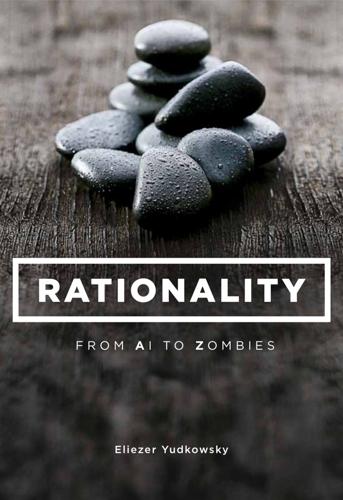
Rationality: From AI to Zombies
by
Eliezer Yudkowsky
Published 11 Mar 2015
As discussed in Perpetual Motion Beliefs, faith and type 2 perpetual motion machines (water → ice cubes + electricity) have in common that they purport to manufacture improbability from nowhere, whether the improbability of water forming ice cubes or the improbability of arriving at correct beliefs without observation. Sometimes most of the anti-work involved in manufacturing this improbability is getting us to pay attention to an unwarranted belief—thinking on it, dwelling on it. In large answer spaces, attention without evidence is more than halfway to belief without evidence. Someone who spends all day thinking about whether the Trinity does or does not exist, rather than Allah or Thor or the Flying Spaghetti Monster, is more than halfway to Christianity.

The Left Case Against the EU
by
Costas Lapavitsas
Published 17 Dec 2018
Often this view is coupled with a demand for ‘More Europe’, that is, for stronger integration, or for a push in the direction of federalism, on the assumption that the lurch of the EU in a neoliberal direction was facilitated by the incompleteness of the union.13 From this perspective, the EMU and the EU are considered, at bottom, as arenas in which to fight political struggles. Neoliberal and anti-working-class policies, far from being inherent in the institutional functioning of the EMU and the EU, are seen as merely reflecting the transient balance of class forces in key countries, such as Germany and France. Calls to exit or dissolve the EMU, in this view, would not only be pointless, but could also open a path for siding with right-wing nationalist and authoritarian forces.

The Victorian City: Everyday Life in Dickens' London
by
Judith Flanders
Published 14 Oct 2012
In 1831, an American tourist noticed a funeral procession in the yard of Westminster Abbey. There were just seven official mourners, but, he was happy to see, they were trailed by ‘a respectful multitude’ of strangers. in 1847, the 3rd Duke of Northumberland died. He had attempted to wreck the Slave Trade Abolition Bill, was vehemently anti-Catholic and anti-working-class, as well as being considered rather stupid and extremely arrogant by the public and his peers alike. Yet ‘crowds of persons’ lined the streets to watch his funeral procession travel from Northumberland House to Westminster Abbey. It was after the mass orgy of ostentatious ceremonial that was the Duke of Wellington’s funeral in 1852 (see pp. 335–46) that funerals of the great, the good and the not-so-good became for the most part quieter events, with less public participation.

Before the Storm: Barry Goldwater and the Unmaking of the American Consensus
by
Rick Perlstein
Published 17 Mar 2009
Their entreaties came to grief. The would-be professor of Christian ethics liked to play rough. “We have a few more Goldwater ads,” Moyers promised the President shortly after the “Daisy” spot ran, “and then we go to the pro-Johnson, pro-Peace, Prosperity, Preparedness spots.” But they never really got to them. Anti worked too well. “Right now, the biggest asset we have is Goldwater’s alleged instability in re atom and hydrogen bombs,” as Jack Valenti put it. “We must not let this slip away.” Moyers was instrumental in pioneering an innovation in presidential campaigning: the full-time espionage, sabotage, and mudslinging unit.